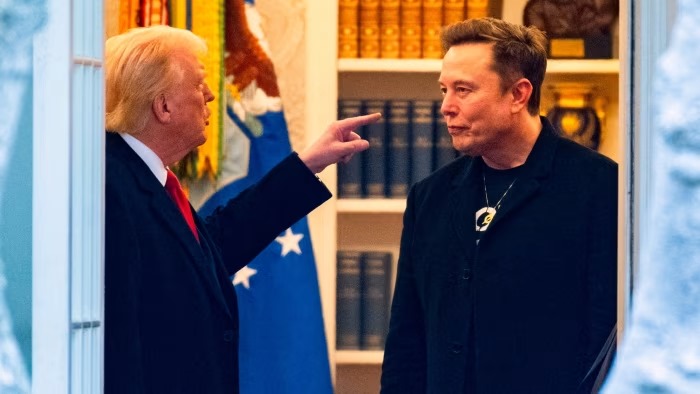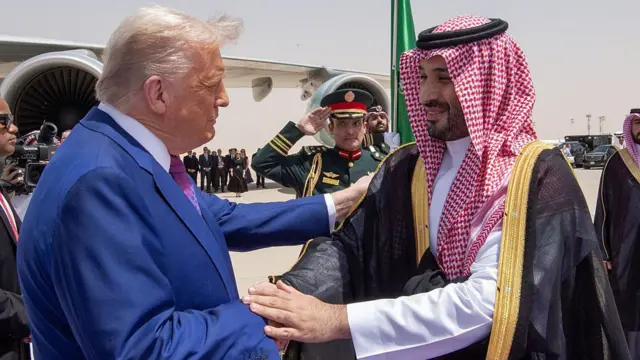In recent years, the public has witnessed an intriguing and often contradictory relationship between Donald Trump, the former U.S. President, and Elon Musk, the billionaire entrepreneur behind Tesla, SpaceX, and X (formerly Twitter). While the two have occasionally praised each other, their relationship has increasingly turned into a political and ideological clash, particularly after Trump left the White House and Musk took over Twitter. Their tensions reveal much about the shifting dynamics between politics, tech, and ego in the modern era.
Early Relationship: Mutual Admiration and Political Alignment
Initially, Donald Trump and Elon Musk shared a somewhat cordial, even cooperative relationship. During Trump’s presidency (2017–2021), Musk served on two of his advisory councils: the Manufacturing Jobs Initiative and the Strategic and Policy Forum. Despite being known for his liberal and environmentalist views, Musk’s inclusion on these councils showed a willingness to work with the Trump administration, particularly on matters of innovation, technology, and job creation.
However, Musk resigned from both councils in 2017 after Trump pulled the U.S. out of the Paris Climate Accord, stating that “climate change is real” and “leaving Paris is not good for America or the world.”
Still, their relationship remained mostly neutral throughout Trump’s term. Trump even praised Musk several times, once calling him “one of our great geniuses” and supporting his space exploration efforts with SpaceX.
Political Divergence and Rise of Tensions
After Trump lost the 2020 election to Joe Biden, Musk’s political voice became louder. Although Musk did not openly support Trump during the election, his growing frustration with Democrats—especially over issues like high taxes, government regulation, and “woke” ideology—pushed him closer to the Republican side.
This alignment created an expectation among conservatives that Musk might become a vocal Trump supporter. However, things didn’t unfold that way.
In 2022, Elon Musk tweeted that he had voted Republican for the first time ever in a Texas special election. He also said he was leaning toward supporting Ron DeSantis, the Florida governor, in the 2024 election. This declaration directly contradicted Trump’s expectation that Musk might endorse him for a presidential comeback.
Twitter Takeover and the Breaking Point
The real turning point in the Trump-Musk feud came when Musk acquired Twitter in October 2022 for $44 billion. One of Musk’s most controversial decisions post-acquisition was to reinstate Donald Trump’s Twitter account, which had been permanently suspended after the January 6th Capitol riot.
Although this seemed like a move to support free speech and possibly Trump, Musk clarified that he wouldn’t personally support Trump’s 2024 candidacy. He stated, “I don’t hate the man, but I think it’s time for Trump to retire and ride off into the sunset.”
Trump, in response, brushed off the reinstatement and stated that he preferred using his own platform, Truth Social. More importantly, he publicly insulted Musk, calling him a “bullshit artist” at a rally in Alaska. Trump claimed that Musk had personally told him he voted for him, which Musk denied on Twitter, adding, “Not true.”
This marked a major public break between the two personalities. The clash of egos, both larger than life, became increasingly visible.
Key Issues Behind the Feud
- Endorsement Politics
Trump has long expected loyalty from influential figures, especially billionaires who share anti-Democratic sentiments. Musk’s refusal to endorse Trump, and his support for DeSantis, was seen as betrayal by Trump and his base. - Free Speech vs. Political Loyalty
While Musk positions himself as a “free speech absolutist,” he has allowed a wide range of political voices back on Twitter/X—including Trump. However, Trump’s skepticism of Musk’s motives (and his own interests in Truth Social) led him to distance himself from Musk’s version of “free speech.” - Business Interests
Musk is primarily a businessman with global interests. Aligning too closely with Trump could alienate investors, international markets, and regulators. On the other hand, Trump’s populist rhetoric often targets globalism and big tech—putting him at odds with tech billionaires like Musk. - Clash of Egos
Both men are famous for their dominating public personas and thin skin when criticized. Neither tolerates being questioned, especially not by someone who occupies a similarly powerful cultural space. As a result, their relationship has become increasingly personal and combative.
Recent Developments
In 2023 and 2024, Musk continued to criticize both Democrats and Republicans but still declined to endorse Trump. Reports circulated that Trump and Musk had private meetings discussing funding and influence in the 2024 campaign, but no alliance formed.
Trump’s Truth Social platform is also a direct competitor to X (Twitter), adding a layer of business rivalry to their political disagreements. Meanwhile, Musk’s frequent reposting of far-right memes, criticisms of immigration, and attacks on “wokeness” often seem Trump-adjacent, but he remains publicly detached from Trump himself.
By mid-2024, both men were still engaged in subtle jabs at each other. Musk has claimed he might vote third-party if no suitable candidate emerges. Trump, meanwhile, uses Musk as an occasional punching bag to rile up his base.
Analysis: What This Feud Represents
The Trump–Musk conflict is more than a clash of two powerful individuals—it’s a symbol of the fragmentation within the American right. While Trump represents the older, populist-nationalist wing, Musk embodies the newer, techno-libertarian, “post-partisan” movement that criticizes both the left and the traditional right.
Their conflict also reveals how social media and influence are now as powerful as political office. Musk owns a major platform that shapes public discourse, and Trump built his political movement on Twitter. Their battle for cultural dominance is partly about who gets to shape the future of online speech, politics, and influence.
Conclusion
The feud between Donald Trump and Elon Musk is a modern reflection of politics entangled with celebrity, business, and ideology. Once allies of convenience, the two have drifted apart due to political differences, clashing ambitions, and conflicting visions of the future. As the 2024 election looms, their rivalry may grow more intense—especially if Trump secures the Republican nomination and Musk remains a wild card in the political conversation.
Whether or not this tension results in open hostility or cautious coexistence remains to be seen. But one thing is clear: in the battle for influence in 21st-century America, Trump and Musk are both players—and rivals.






